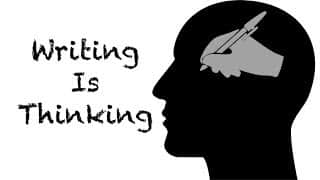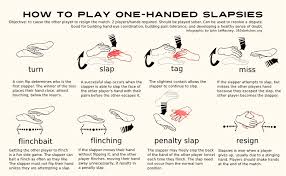I’m spending this week writing about writing:
Specifically, I plan on dispelling some of the myths and misconceptions about the witting process, in hopes of helping writers, teachers, and parents assist themselves, their students, and their children become more enthusiastic, more effective writers.
After all, most people in this world do not write. They don’t enjoy writing, avoid it at all costs, and don’t do it well. But if you can write well, you possess a super power. Beyond my actual career as an author and columnist, I cannot tell you how many times I’ve been leaned upon by supervisors and colleagues for my ability to write well.
Writing well will make you vastly more valuable in almost any career that you choose.
In addition to helping people become better writers, I also want to rant a little bit about things that annoy the hell out of me.
I don’t know if you’ve noticed, but I enjoy the occasional rant.
____________________________________________
LESSON #2
Thinking is writing.
Two summers ago, I was working with a group of middle and high school aged girls – students from around the country and the world – at Miss Porter’s School in Farmington, CT, teaching a week-long workshop on storytelling and writing. After modeling some storytelling strategies, I sent the ladies off to do some writing.
Before rising from her seat, one of my students raised her hand and asked if it was okay to think for a little while first before writing.
“You’re asking me for permission to think?” I asked.
“Yeah,” she said. “My English teacher tells me that I need to think at the end of my pencil.”
“What?”
“Think at the end of my pencil.” she said. “She said I have to be writing while I’m thinking.”
“You’re kidding me. Right?”
She shrugged her shoulders. “Nope.”
I explained to the young lady, as I explain to you now, that writers spend an enormous amount of time just thinking. Sometimes I might spend an entire writing session trying to puzzle out my next move. Decide upon the fate of a character. Determine if what I have written is complete, incomplete, or completely stupid.
Sometimes the only thing that my students do for an entire writing lesson is think, and I think that is fantastic.
Thinking is writing.
In fact, I suspect that the best writers in this world spend enormous amounts of time just thinking. They think about the world, themselves, their characters, their thoughts, their feelings, and more.
For someone like me, who writes novels, nonfiction texts, magazine columns, personal narrative, poetry, and a blog post every single day since 2003, thinking is essential in order to produce the amount of content that I require. I need to be constantly generating new ideas. These ideas don’t suddenly spring forth from the end of my pencil. They require me to be constantly thinking about the world around me.
Sometimes that thinking happens while riding my bike. Or driving my car. Or washing the dishes. Sometimes I find new ideas while petting a cat or reading a book or eating a bowl of cereal. I recently stumbled upon an excellent idea for a book while brushing my teeth. But oftentimes thinking takes place while staring at the screen, fingers perched above the keyboard, waiting to go to work.
Think at the end of your pencil?
This is advice offered by someone who sees writing exclusively as the act of placing words on the page. This is a person who discounts thinking because there is nothing tangible to show for it.
This is advice from someone who does not write.
Writers need permission to think.
More importantly. writers need to feel good about themselves for thinking. It’s not uncommon for a writers to put pressure on themselves to produce a specific number of words or pages per day, and while I support the establishment of such goals, I also strongly support celebrating the time spent thinking about our work.
As a writer, you must feel free to think a lot and write nothing when the need arises. You must be able to congratulate yourself for time well spent just thinking.
The best way to teach writing to any student of any age is to write. Engage in the process on a daily basis. Learn what it takes to connect sentences and paragraphs into solid prose.
Do the job so that you can understand the job.
Do the job so you understand the importance of just thinking, not at the end of your damn pencil, but inside your own damn head.









